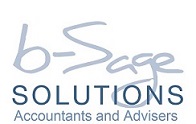Technical Update June 2016
Written and accurate as at: Jun 03, 2016 Current Stats & Facts

2016/17 Federal Budget
The government handed down the 2016/17 Federal Budget on Tuesday 3rd May.
It included (among many changes) proposed personal income and company tax cuts from 1 July 2016, the extension of GST to all imports (irrespective of value) from 1 July 2017, an increase in the small business entity (‘SBE’) turnover threshold from 1 July 2016, and (as you may have heard) many, many superannuation changes.
Of course, they are all dependent on the Turnbull Government winning the election on 2 July and the legislation then surviving Parliament after that.
Editor: We'll keep you informed!
SMSFs and Collectables – last opportunity to comply!
From 1 July 2011, SMSF investments in collectables and personal-use assets have been subject to stricter rules than SMSF investments in other assets (such as shares and property).
Editor: Assets considered collectables and personal-use assets include things like artwork, jewellery, antiques, vehicles, boats and wine.
However, SMSFs that already had investments in such assets before 1 July 2011 were given five years to comply with these rules (i.e., until 30 June 2016).
Therefore, any SMSFs with such investments need to consider their situation carefully and take appropriate action (if necessary) before 1 July 2016.
Such action may include (for example):
- reviewing current leasing agreements (items can't be leased to or used by a related party, including business premises);
- making decisions about storage (items can't be stored or displayed in a private residence of a related party, and decisions about storage must be documented and the written record kept); and
- arranging insurance cover (items must be insured in the fund’s name).
In addition, if the trustees of the fund are considering disposing of these items, they can be transferred to a related party without a qualified independent valuation, but only if the transfer takes place before 1 July 2016 and the transaction is made on arm’s-length terms.
If these requirements are not met from 1 July 2016, penalties may apply.
ATO's continuing focus on trust property developers
In recent years, the ATO has focused on trusts developing and selling properties as part of their normal business.
When these developed properties are sold, some trusts incorrectly claim a 50% CGT discount.
The ATO will continue to target arrangements that display the following characteristics:
- clients have experience in either developing or selling property (or experience in the industry) and establish a new trust to acquire property for development and sale;
- circumstances surrounding the arrangement are inconsistent with the stated purpose of developing the property as a long term investment;
- the development is advertised as available to purchase before completion, or is sold soon after completion; and
- the trustee claims the 50% CGT discount on the sale of the property.
The ATO is encouraging taxpayers to review their circumstances with their tax agent/adviser.
Editor: The ATO has also advised that they may contact property developers directly to "help them meet their obligations during development and disposal of the property. However, we may contact your clients at any stage of a development, not just on the sale of the property."
If you get any such contact – let us know!
New Simpler BAS on the way
The ATO has been working on ways to deliver a simpler business activity statement (BAS) to simplify account set-up, record keeping, BAS preparation and lodgment for agents and their clients, and make it less costly.
To achieve this, several GST labels will be removed from the BAS, with small businesses only required to report:
- GST on sales (1A);
- GST on purchases (1B); and
- Total sales (G1).
They will begin user testing from 1 July 2016 and a simpler BAS should be the standard option for all small business from 1 July 2017.
ATO reminder about 30 June SuperStream deadline
With the 30 June 2016 deadline looming, the ATO strongly encourages small businesses to get on board with SuperStream as soon as possible.
SuperStream is the standardisation of how employers make super contributions on behalf of their employees, and involves employers sending all super payments and employee information electronically in a standard format.
Using it is mandatory.
Editor: Unless the employer and the SMSF are related parties…
Options for becoming 'SuperStream ready' include using:
- a payroll system that meets the SuperStream standard;
- a super fund’s online system; or
- a messaging portal or a super clearing house like the ATO’s Small Business Super Clearing House (SBSCH).
The SBSCH is a free, optional service for small business with 19 or fewer employees, as well as businesses with an annual aggregated turnover of $2 million or less.
Editor: If you’re worried you won’t be able to use SuperStream as you don’t operate electronically, there is a SuperStream option to suit every business, including using third parties to pay your super using SuperStream on your behalf.
If you have any questions, let us know and we'll help you out.
ATO warns about iTunes scammers
The ATO is reminding the public to be alert to scammers impersonating the ATO demanding iTunes gift cards as a form of tax debt payment
Of the 8692 phone scam reports the ATO received in April 2016 in relation to the fake ATO tax debt scam, 58 reports mentioned the scammer demanding payment by iTunes (and apparently 26 people unfortunately payed $174,830 to fraudsters!)
Importantly, the scammers don’t need the actual physical card; they just need the gift card number, which they get victims to read over the phone.
The ATO states: “We will never request the payment of a tax debt via gift or pre-paid cards such as iTunes and Visa cards. Nor will we ask for direct credit to be paid to a personal bank account.
“And if the person calling you is rude and aggressive, threatening police or legal action if you don’t do something immediately – it’s not the ATO".
_______________________________________
Taxpayer not a 'share trader' despite substantial share trades
Editor: In a recent case, a taxpayer undertook significant trades on the stock exchange and made losses, but was still found to be a 'share investor', rather than a share trader, meaning she could not deduct her losses against her other income (i.e., her losses were 'capital losses' that can only be offset against capital gains).
The Facts
The taxpayer (who otherwise worked as a child care educator and earned approximately $40,000 in wages) started trading shares in July 2010, utilising her (and her husband’s) savings of approximately $60,000 and a margin loan of initially $40,000.
During the 2011 income year, she made:
- 71 purchases to a value of $379,630; and
- 37 sales to a value of $215,019.
She made a loss on her share transactions during the 2011 income year to the order of $20,000, and she was seeking to claim that as a deduction.
The Decision
The Senior Member of the AAT considered the following factors in deciding that the taxpayer was not a share trader.
Factors in favour:
- the turnover was substantial, particularly having regard to her wages; and
- the taxpayer maintained a home office for the purpose of undertaking the share transactions.
_______________________________________
GST implications when employer pays for a super fund's expense
An employer cannot claim an input tax credit where it pays an expense on behalf of a superannuation fund, as the supply is not made to the employer; but to the super fund.
However, if the fund is registered for GST, then it may be entitled to claim an input tax credit (or a reduced input tax credit if the requirements in Division 70 of the GST Act are otherwise satisfied).
For example, assume a super fund engages a legal firm to provide advice about its activities, but the employer connected with the super fund pays the legal fees associated with this advice.
Because the supply of the advice was made by the legal firm to the super fund, the employer is not entitled to an input tax credit (i.e., the employer has not 'acquired anything', even though it made the payment).
However, depending on the circumstances and whether the super fund is registered for GST, it may be entitled to a full or reduced input tax credit.
Editor: The rules relating to GST are more complicated for super funds than for other entities, so please phone our office if you would like discuss this important issue.
______________________________________
Impending blowout from the leaked 'Panama Papers'
Editor: Clients may have recently heard something about an unknown source who has leaked 11.5 million documents from the Panamanian law firm of Mossack Fonseca.
Basically, the documents illustrate how many wealthy individuals hide their money from tax authorities.
Under a plan devised by the Commissioner of Taxation, Chris Jordan, 35 countries have agreed to mount the most ambitious international investigation in history to hunt down tax evaders identified in the Panama Papers leak.
About 800 Australians are listed in the files of Panama law firm Mossack Fonseca, from which confidential correspondence was leaked, and 80 of those are identified in the Australian Crime Commission's (ACC's) database for serious and organised crime.
The ATO says that it has now linked over 120 of them to an associate offshore service provider located in Hong Kong.
Deputy Commissioner, Michael Cranston, said that “The information we have includes a large number of taxpayers who haven’t previously come forward, including high wealth individuals, and we are already taking action on those cases”.
The documents from Mossack Fonseca have been exposed in a global media project led by the International Consortium of Investigative Journalists (ICIJ).
The ICIJ plans to release the names of all of the 240,000 offshore entities set up by Mossack Fonseca, along with directors and shareholders, next month.
______________________________________
Gold Coast businesses under the ATO's microscope
As part of an ongoing, Australia-wide program, the ATO has advised that it will be visiting restaurants, cafés and take-aways, along with hair salons and nail bars, on the Gold Coast.
Assistant Commissioner Matthew Bambrick said “In all, we’ll be visiting around 250 businesses in the Gold Coast to talk about a range of topics, including business registration, record-keeping, superannuation and lodgment."
“Where taxpayers are unwilling to work with us or continue to cause us concern, we will undertake further investigation. In Sydney and Melbourne, for example, we have now moved to auditing businesses that didn’t want to work with us.”
ATO's 'High risk industries' for super guarantee
Each year, the ATO identifies industries that they believe are at risk of not meeting their super guarantee obligations for eligible employees.
This year they are looking at these industries:
- bakeries;
- supermarkets;
- car retailers; and
- computer system designers.
Letters will be sent to clients in these industries advising of planned audits from July 2016.
Lifestyle assets and CGT
The ATO has advised that it has identified some instances where lifestyle assets, such as artworks and collectables, are not being properly accounted for.
They said that they want to help taxpayers with these kinds of assets comply and be aware they may be subject to CGT on disposal.
They said that it's important taxpayers are aware that:
- items purchased for more than $500 on or after 20 September 1985 are subject to CGT, even if they are kept mainly for the personal use or enjoyment of your client;
- special CGT rules apply to items that form part of a deceased estate; and
- the date of purchase/auction needs to be accounted for, not the settlement date.
The ATO is currently working with insurance companies to identify owners of these sorts of assets.
Editor: Clients who may be affected should contact our office.
New rules for selling property over $2 million
From 1 July 2016, new rules will apply to sales of taxable Australian property (e.g., real estate) with a market value of $2 million or above.
A 10% non-final withholding tax may be applied to all contracts to sell such property entered into on or after 1 July 2016.
Australian resident vendors selling such property will need to obtain a clearance certificate from the ATO prior to settlement to avoid the 10% non-final withholding tax.
Editor: This new 10% withholding tax was really only intended to apply to non-residents selling Australian property.
However, it equally applies to Australian resident vendors and forces them to obtain a clearance certificate from the ATO to, in fact, prove that they are Australian residents.
Generally speaking, clients will be affected for sales of residential and commercial properties, or companies or trusts that hold such properties.
Contractor payments data matching program
The ATO has advised that it is continuing its Contractor payments data-matching program.
It will acquire data from businesses that it visits as part of its employer obligations compliance program during the 2016/17, 2017/18 and 2018/19 financial years.
The data collected from businesses is used to identify contractors that may not be meeting their taxation obligations through:
- not registering correctly with the ATO;
- non-lodgment of returns;
- failing to report payments received; and
- not paying amounts of tax due to the ATO.
This is an ongoing data matching program and has been conducted for more than five years













